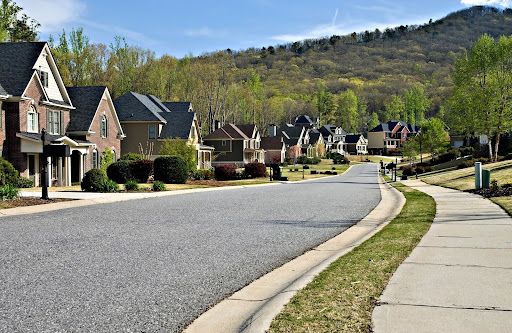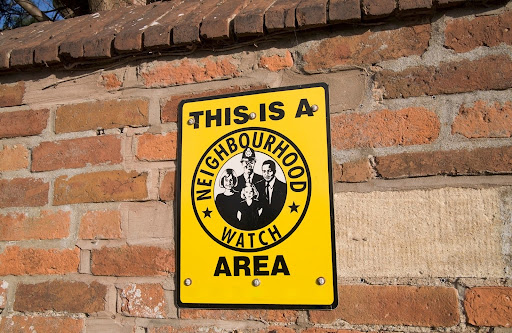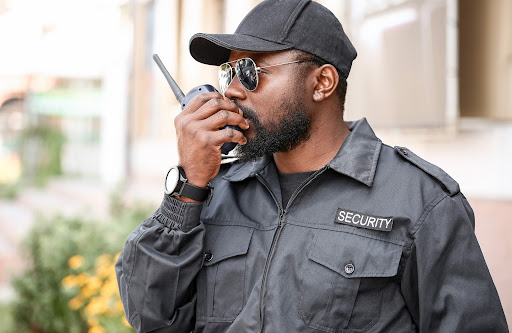
Planned communities offer many benefits, like garbage disposal and snow removal. However, while these services may be basic in most communities, HOA security is not always a given. What are the HOA’s responsibilities when it comes to security? Are they liable for the homeowners’ safety?
Is HOA Responsible for Security?
Many homeowners and potential residents ask about HOA security responsibilities. They may assume that an HOA oversees everything related to community living, including security and safety. However, an HOA’s security responsibilities are not as clear-cut as common area maintenance.
In most cases, homeowners associations are in charge of repairing and maintaining the common elements, including any security cameras or gates that might be on the premises. However, their scope of responsibility depends on the governing documents, which will dictate whether or not the HOA must provide the residents with a safe and secure environment.
Some communities are proactive about HOA security. The board takes extra precautions and installs fences, gates, and CCTV cameras. They may even hire security personnel. Meanwhile, other HOAs take a more relaxed approach. These HOAs may leave security issues in the hands of homeowners themselves.
Is the HOA Liable for Security Issues?
Homeowners associations are not entirely liable for security. They may only be held accountable if they do not take appropriate or timely action to resolve general safety concerns that result in damages to a resident or their property. For instance, the HOA may be liable for not installing ample lighting in common areas to prevent accidents and deter crime.
In addition, the board should never make statements that the homeowners can interpret as promises to keep them safe. Otherwise, they could be held liable for security breaches. The board should also encourage residents to be proactive about maintaining their own security.
Adding a security disclaimer in the HOA’s membership mailings and newsletters may also be wise. This will remind them that the HOA cannot guarantee the people’s safety and security. The residents should not rely on the association to protect them.
What can the HOA do to Increase HOA Security?
While the HOA is not always responsible for security, it can still take measures to enhance security within the community. Here are some ways the HOA can increase security and prevent crime within the neighborhood.
1. Conduct a Security Assessment
Homeowners associations should be aware of potential vulnerabilities around the area. They may conduct an assessment by hiring HOA security companies to inspect the premises. The inspectors will then check all the entry and exit points within the community and help identify threats. They may also offer possible solutions with their expected costs.
Security assessments may cost anywhere from $1,500 to $5,000. The HOA may also need to pay additional fees to cover the cost of labor and equipment usage. Nonetheless, they are a good investment if the HOA wants to increase its security.
2. Install Enough Lighting in Shared Spaces
The HOA has jurisdiction over shared spaces like roads, walkways, parking lots, and recreational areas. Hence, it is in charge of installing and maintaining ample lighting in these spaces. Ample lighting might not seem like a big deal, but it significantly deter crime. After all, criminals are more likely to act in dark places where they cannot get caught.
If the HOA wants to cut costs, the board may also install motion-activated lights to save energy. This allows the community to remain well-lit and save money on electricity bills.
3. Check All Security Measures
Homeowners associations with built-in security measures such as cameras and fences must ensure they’re properly installed and that these measures are doing their job properly. For instance, if an HOA has a security fence, it should ensure it is at least four feet tall to prevent people from entering.
4. Create a Safety Committee or Neighborhood Watch

The HOA may form a neighborhood watch or Safety and Security Committee to monitor the association’s security measures. The committee may discuss and spearhead potential security plans and solutions with the board.
Meanwhile, the neighborhood watch volunteers can regularly patrol the neighborhood to prevent crime. It makes the residents feel safer knowing that fellow community members are actively looking out for them.
5. Keep Open Lines of Communication
HOAs should keep communication lines open at all times and ensure the residents have someone to call in case of an emergency. This way, the HOA and local law enforcement can quickly act whenever something happens.
The HOA should also encourage residents to voice their concerns. Everyone should be heard when it comes to security and safety. Don’t dismiss someone’s suspicions and make sure to investigate properly.
6. Schedule Regular Maintenance
The board should schedule regular maintenance for any security systems the HOA has installed. This way, the HOA will not be held liable should there be any burglaries, property damage, or incidents in the neighborhood.
The association may need to work with a community management service provider familiar with the HOA’s security systems. They can also choose to work with the original manufacturer to set up maintenance plans.
7. Install Security Cameras
Security cameras are great at deterring crime and catching culprits. However, they will be useless if the HOA does not put them in the right places. Ensure to install the cameras in strategic locations such as entry and exit points, around common areas, neighborhood streets, and near vulnerable spots.
In addition, cameras will need regular monitoring to be effective. Consider hiring an HOA security guard who can monitor the cameras. They can alert local law enforcement right away should anything happen. The community should also have a good HOA access control system so only select individuals can access the footage.
8. Use Landscaping to Your Advantage
Landscaping can play a big role in HOA security. It can either prevent or encourage crime in the neighborhood. For example, overgrown vegetation can serve as a place for criminals to hide. Meanwhile, long and low-hanging tree branches allow criminals to climb up and into second-story windows and balconies.
HOAs should prioritize landscaping and keep vulnerabilities in check. Hire a landscaper to trim trees, shrubs, and grass regularly. HOAs can also use the landscaping to their advantage. For example, planting thorny bushes around the HOA can discourage criminals from entering or using them as hiding places. They can serve as natural barriers to the outside world.
9. Educate the Members
HOA security services can only do so much to protect the residents. The members should not rely solely on the HOA to protect them from harm. They should be proactive and employ safety measures on their own.
The HOA can help the homeowners by educating them on safety protocols. Remind them to install carbon monoxide detectors, take inventory of personal possessions, and leave lights on to deter intruders. They should also be aware of who they should contact when incidents occur or if they spot suspicious activity.
10. Work With the Police
HOAs may partner with local police to prevent crime in the neighborhood. The board can invite them to meetings, ask them to conduct workshops, and even ask them if they can help with neighborhood patrol.
11. Hire HOA Security Services

Professional security companies offer many benefits to HOA communities. If the HOA budget allows, consider hiring security guards and professional security personnel to protect the residents. They often have more experience preventing crime and know what to do when incidents occur.
However, hire an independent company with no relation to the community. It’s usually not wise to hire a company if a board member has a financial interest in it. This is because the HOA may be exposed to more liability.
In addition, it may be best to hire unarmed security guards instead of armed ones. The use of firearms and weapons can create legal trouble for the HOA. Misuse, mishandling, and accidents do occur. The residents might file a lawsuit against the HOA without injuries or damages.
What can Homeowners do to Increase Security?
Homeowners should take a proactive approach to HOA security. The HOA may be unable to protect them from all harm and property damage. Hence, they should take measures to keep themselves and their homes safe. Here are some ideas to consider.
- Lock the Doors. Homeowners should keep their doors locked to prevent anyone from entering without permission.
- Refuse to Open Doors to Strangers. Homeowners should not let strangers inside their homes.
- Ask Service Workers for Identification. Homeowners should ask for a service worker’s ID to ensure they are legitimate workers and not potential scammers or thieves.
- Purchase Insurance. Residents may purchase homeowners insurance policies with break-in, theft, and dwelling coverage.
- Install CCTVs. Members may consider installing security cameras around their perimeter to deter crime and prevent break-ins.
- Take Precautions When Traveling. Homeowners who travel often may install automatic lights that open and close at certain times, even when they are away. This prevents others from thinking nobody is home and deters potential thieves.
Enhancing Safety
HOA security should be a top priority in many communities. While the HOA is not always responsible for the people’s safety, the board may still ensure the neighborhood is generally safe. Doing so helps achieve the HOA’s goal of preserving property values.
Personalized Property Management offers expert management services to HOAs in Southern California. Call us today at 760-325-9500 or contact us online for more details!
RELATED ARTICLES:
